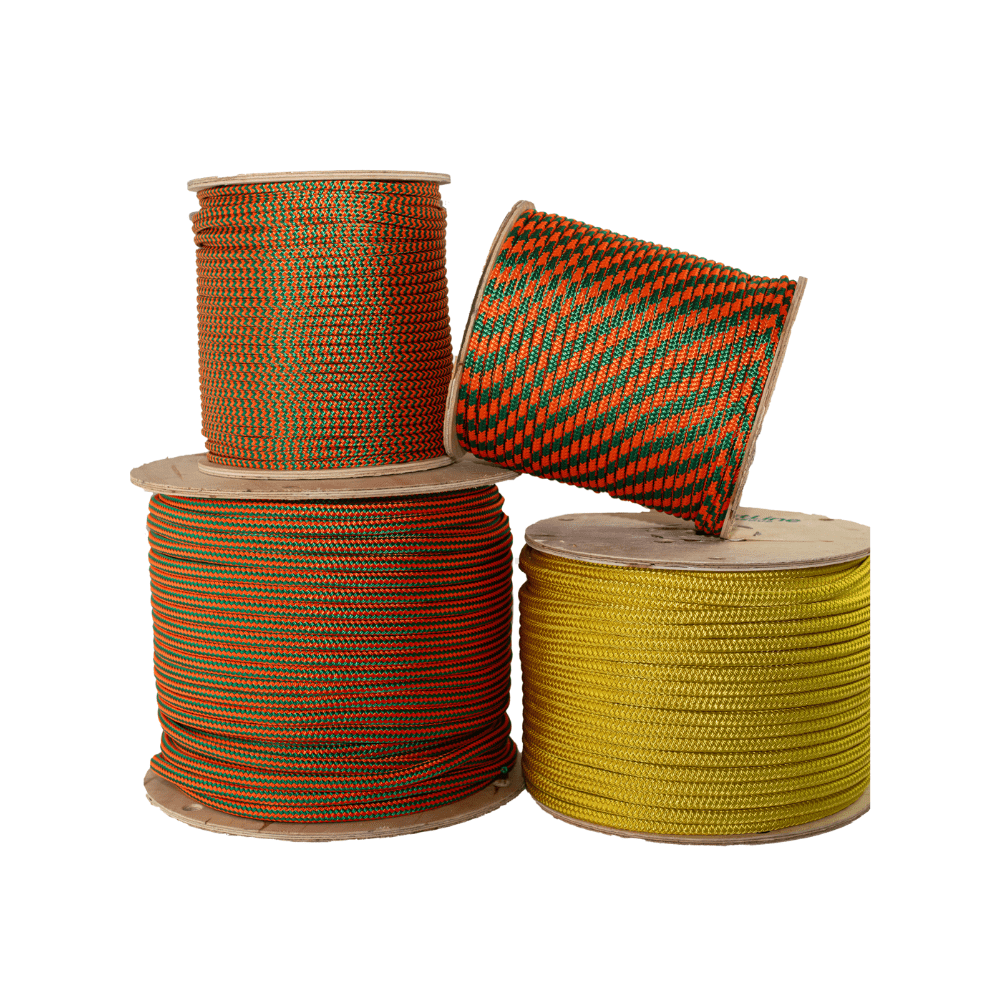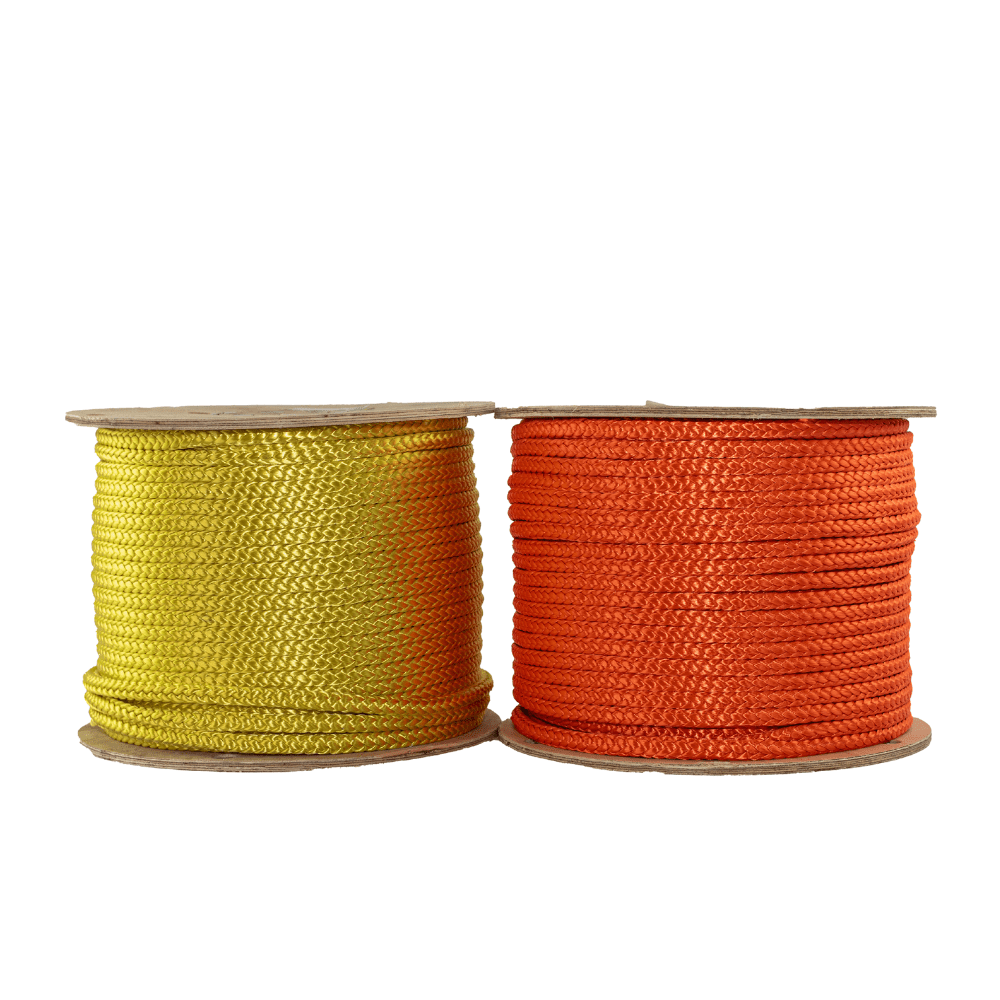Best Arborist Rope for Climbing, Rigging & Tree Cutting
When it comes to professional tree work, having the right arborist rope can make all the difference. Whether you're climbing, rigging, or cutting, the strength, durability, and reliability of your rope are critical to ensuring both safety and efficiency.
In this guide, we’ll explore the different types of arborist ropes, their specific uses, what to look for when buying, and spotlight some top-rated products that are trusted by industry experts.
Why Choosing the Right Arborist Rope Matters
The Role of Arborist Ropes in Tree Work
Arborist ropes are the backbone of any tree care operation. They play a vital role in tasks like ascending trees, securing branches, and safely lowering cut limbs. Without strong ropes tailored for the job, professionals put themselves and their equipment at risk.
Safety and Efficiency Go Hand in Hand
Using the wrong type of rope—or one of inferior quality—can lead to serious accidents or unnecessary wear and tear on gear. Arborist ropes are designed to meet specific safety standards and undergo rigorous testing to handle high loads, making them a must-have for any serious arborist.
Types of Arborist Ropes Explained
Climbing Ropes: Strength and Flexibility
Climbing ropes are essential for ascending and descending trees. These ropes are typically constructed to be both flexible and durable, offering excellent grip while maintaining enough elasticity to absorb dynamic movements. A well-crafted arborist rope for climbing must provide a balance between flexibility and abrasion resistance.
Rigging Ropes: Built for Heavy Loads
Rigging ropes are heavier and sturdier than climbing ropes. Designed for lowering cut branches or moving heavy equipment, they can handle significant weight and stress. Choosing the best arborist rope for rigging is essential to ensure the rope doesn’t fray, snap, or degrade over time.
Product Spotlight: Double Braid Composite Rope
The Double Braid Composite rope is a favorite among tree professionals who demand reliability under pressure. The double braid composite construction offers excellent strength while maintaining a manageable weight, making it ideal for both climbing and rigging operations. Its durability and low stretch make it an excellent choice for anyone needing a rope that performs well across a wide range of outdoor rope tasks.
Key Features
Double braid construction enhances strength and flexibility
High resistance to abrasion and UV rays
Ideal for climbing, rigging, and lowering operations
Low-stretch design for better control under load
Available in various lengths and diameters
Key Factors to Consider When Buying Arborist Ropes
Rope Construction and Strength
The way a rope is made greatly influences its performance. Braided ropes, like double braid or 12-strand constructions, tend to offer better load distribution and resistance to wear. When you buy rope for arborist use, checking for tensile strength and material quality is essential.
Durability for Outdoor Use
An outdoor rope must withstand more than just weight—it must battle the elements. Look for ropes made with polyester or other synthetic fibers that resist moisture, UV exposure, and mildew. Arborist ropes exposed to the elements should maintain their integrity even in harsh conditions.
Versatility Across Tasks
While some ropes are designed strictly for climbing or rigging, the best arborist ropes can perform multiple tasks. Whether you’re cutting, climbing, or securing loads, having a versatile rope reduces the need for multiple lines and simplifies gear management.
Top Applications of Strong Ropes in Tree Work
Climbing, Cutting, and Lowering
From scaling tall trees to lowering large branches, arborist work demands strong ropes that can hold up under pressure. High-quality ropes minimize stretch, prevent sudden jolts, and offer superior control in demanding situations.
Emergency and Industrial Applications
Beyond typical tree care, arborist ropes also find use in emergency scenarios or industrial environments. The same qualities that make a rope suitable for arborist tasks—strength, durability, and reliability—make it ideal for other tough jobs requiring secure line handling.
Product Spotlight: 12 Strand Polyester Rope
Built with a high-strength polyester rope, this rope stands out as one of the most reliable options for both rigging and climbing. Its 12-strand construction makes it lightweight and easy to handle, while also offering exceptional tensile strength and abrasion resistance. Whether you're dealing with tree cutting or need ropes for industrial rope applications, this product is a trusted workhorse.
Key Features
12-strand single braid design for maximum strength
Excellent resistance to chemicals and sunlight
Low stretch and minimal recoil
Floats on water, ideal for wet environments
Easy to splice and knot
Where to Find Top-Rated Arborist Ropes
Reputable Places to Buy Rope
Finding quality arborist rope for sale isn’t just about price—it’s about sourcing from trusted suppliers who understand the needs of professionals. Many online and specialty stores offer a wide selection of ropes with detailed specifications, reviews, and certifications to help you make the right choice.
What to Look for When Searching Arborist Rope for Sale
When browsing options, always check for load ratings, rope diameter, and intended application. Look for products marketed specifically as arborist ropes to ensure they meet safety standards. It’s also smart to read user feedback and compare performance features like flexibility, strength, and resistance to abrasion.
Conclusion
Choosing the right arborist rope is more than just picking something strong—it's about selecting a rope that meets your specific needs for climbing, rigging, or cutting. From the flexibility of climbing ropes to the rugged strength required for rigging, arborist ropes are essential tools in every professional’s kit. Products like the Double Braid Composite Rope and the 12 Strand Polyester Rope offer durability, reliability, and performance that professionals can count on. Whether you're a seasoned arborist or just getting started, investing in top-rated arborist ropes will ensure your safety, efficiency, and peace of mind on every job.
FAQs
What is the best arborist rope for climbing?
Climbing ropes with flexible, low-stretch designs such as double braid constructions are ideal. They provide a good grip, resist abrasion, and offer dynamic movement control.
Can I use industrial rope for tree work?
Only if it meets the strength, stretch, and safety specifications needed for arborist tasks. Arborist-specific ropes are better suited for the of climbingunique demands and rigging trees.
What’s the difference between 12-strand and double braid rope?
12-strand ropes are usually lighter and easier to handle, making them great for rigging. Double braid ropes have a core and a sheath, offering superior strength and durability for a variety of tasks.
How do I know if a rope is strong enough for tree cutting or lowering?
Always check the tensile strength and load rating provided by the manufacturer. A strong rope designed for rigging should clearly indicate the maximum weight it can safely support.
Where can I buy top-rated arborist ropes?
You can buy rope from specialized arborist supply stores, outdoor gear retailers, or reputable online platforms that provide verified product information and customer reviews.




.jpg)
Comments
Post a Comment